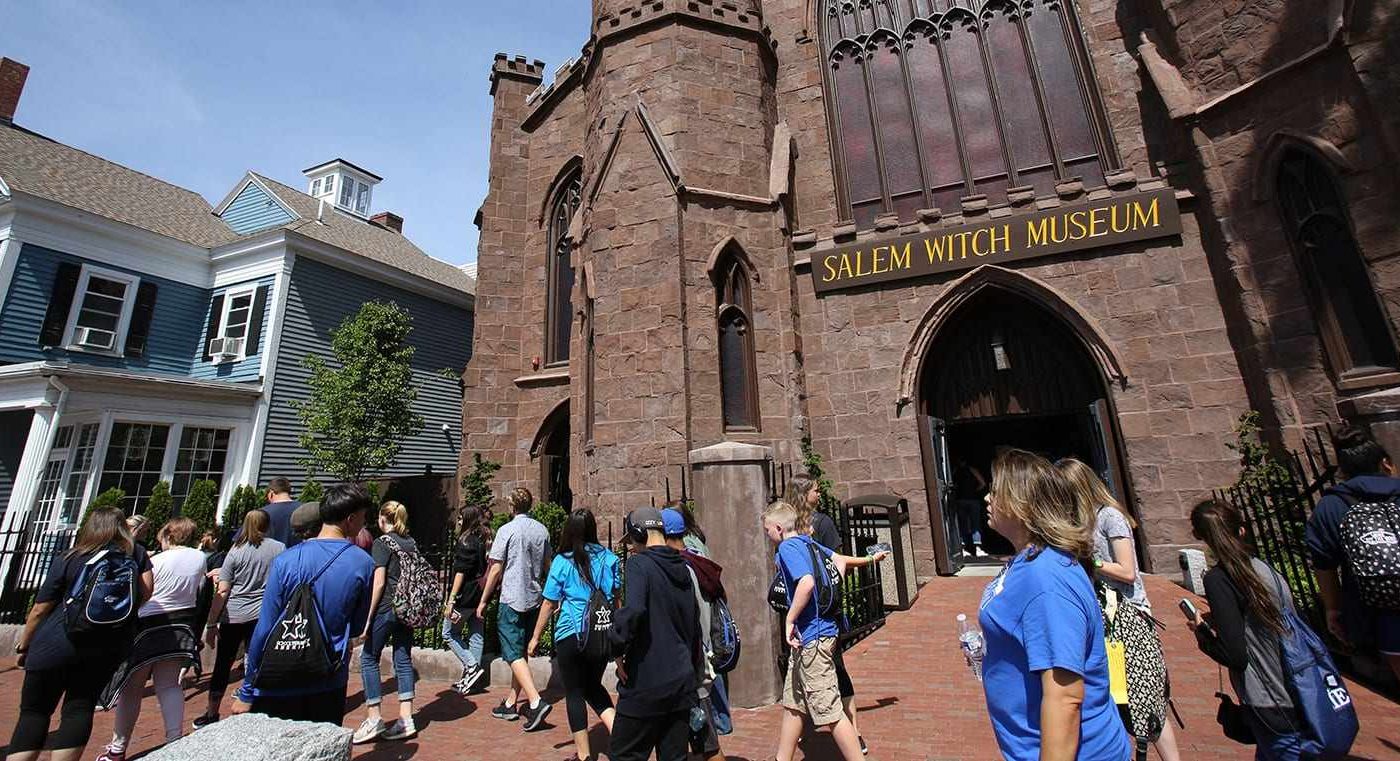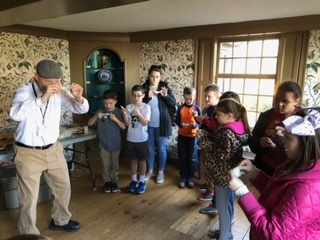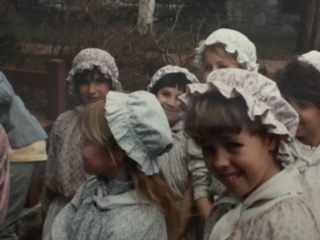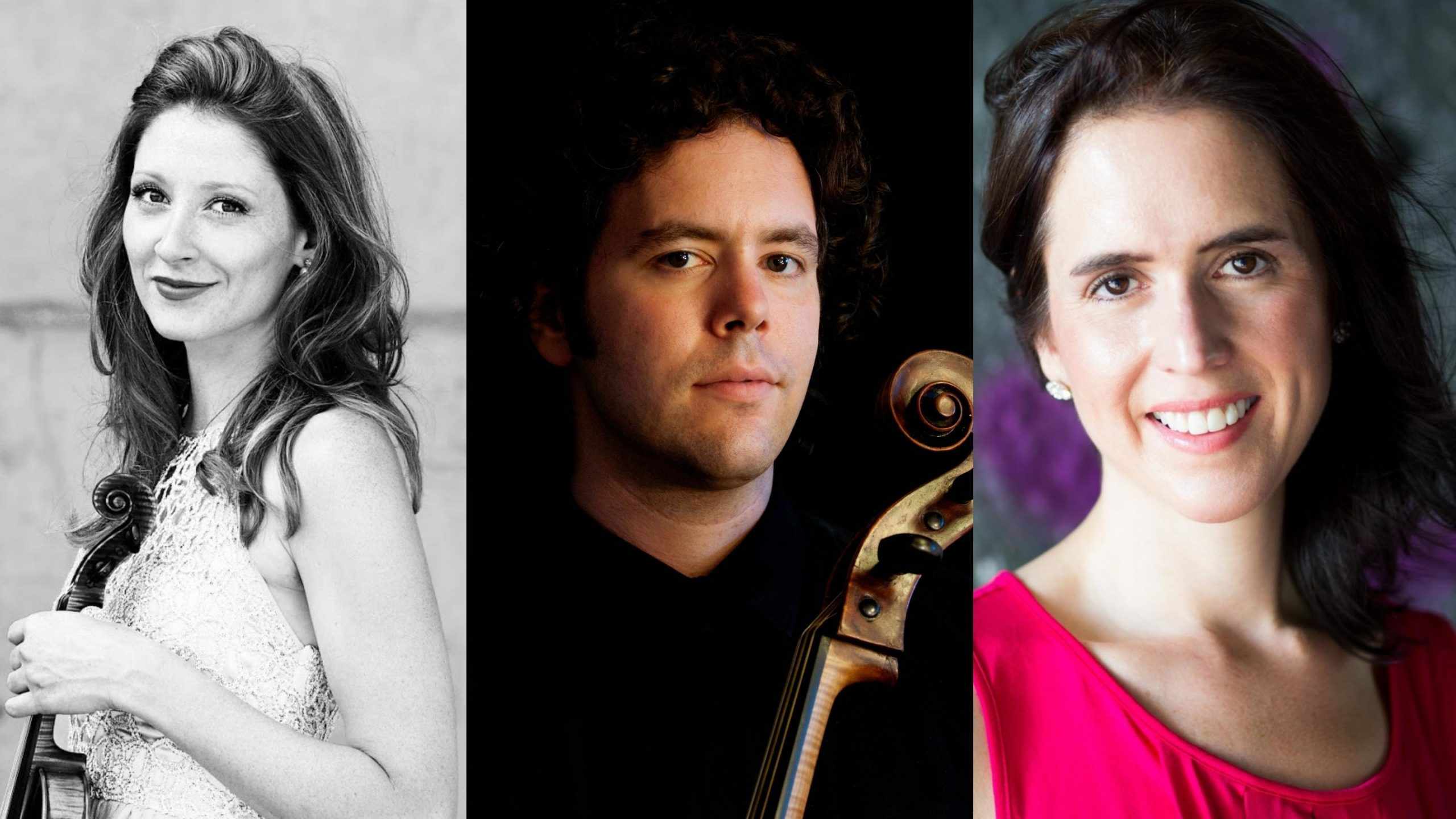

By Julie Arrison-Bishop, MuseumTastic, Founder
Do you remember your first field trip? Where was it? Who were you with? What did you learn? Do you have any sensory memories of the place you experienced?
It may not have been my first field trip, but a visit to Storrowtown Village in West Springfield, MA is often what I point to as a pivotal life moment, despite being a second grader. All the children in my class were able to dress in colonial clothing, dip candles, have a lesson in the one-room schoolhouse, and learn about life in the 1800s. To this day, I can remember the smell of the beeswax, the uncomfortable desks, and the love of history that swelled in me that day.
That love of history, spurred by a hands-on field trip, led me to a career in museums. It made me wonder how field trips and awesome educational experiences have inspired others. Field trips matter. Place-based education matters. Experiences outside of the traditional classroom matter.
Museum education has changed significantly in the past decade. There is a larger focus on inclusive stories and lessons. The learning path is based on tried-and-true methods – not just herding a bunch of colonial kids through an old house. In many cases, staff are specially trained to deliver information to a student audience. Students who participate in field trips often prepare in the classroom and follow up with activities after their visits to solidify the experience.
There is no shortage of educational opportunities on the North Shore. Today, you’ll have the chance to hear from two of my colleagues and passionate educators in Salem. Rachel Christ-Doane is the Director of Education at the Salem Witch Museum. Kaylee Redard is the Assistant Visitor Services Manager at The House of the Seven Gables. Her focus is on educational programming.


Tell us the highlights about field trips at your organization:
Rachel (Salem Witch Museum): We currently offer in-person and virtual field trips. Our in-person experience includes a point-by-point overview of the witch trials in Salem in 1692 followed by an audio tour of the exhibit Witches: Evolving Perceptions. Our virtual offerings span all age groups and a number of subject areas, including the Salem witch trials, evolving image of the witch, life in colonial New England, and Arthur Miller’s The Crucible.
Kaylee (The House of the Seven Gables): The Gables offers three in-person programs and one remote education program for grades two through eight. These programs immerse the students in their learning through hands-on experiences and open discussions.
Tell us about your favorite time working with a group of students:
Rachel: It has been particularly rewarding over the past few years to work with virtual groups across the country and the world! Some of our favorite moments with these groups have been during the Q&A sessions at the end of each presentation. So many of these students have thoughtful and insightful questions and comments to share.
Kaylee: My favorite part of these visits is seeing the amazement on students’ faces when they learn something new or they have the ah-ha moment when something they learned in class finally clicks.


Why do you think field trips/museum education/place-based learning is important?
Rachel: For many students, field trips/museum education provides an opportunity to bring history to life. At the Salem Witch Museum, we work hard to provide educational experiences for learners of all ages. Our immersive main presentation is one such way to achieve this goal. Having the opportunity to step into a historical period, surrounded by sounds and scenes intended to evoke an emotional response, can be a very powerful teaching tool, one which appeals to a wide variety of learners.
Kaylee: These field trips are designed to teach students, but they are also designed to be fun, which is why I think place-based learning is so important. In my experience, kids learn best when they don’t realize they are learning. Taking students somewhere outside the classroom, where they can explore and learn in their own way, makes an impression.
Any other thoughts/comments:
Rachel: Since beginning this virtual field trip program, there have been many occasions where we have been truly blown away by these group discussions and the level of engagement and enthusiasm of these students. Many of these students (and teachers) tell us they would love to visit Salem someday, and are excited to have had an opportunity to connect with this city and its history, even from afar.
Kaylee: We, at The Gables, are very excited to be welcoming students back to our historic site, in-person, and continue to share our story.
Talk to us: Tell us about your favorite field trip! Email Joey Phoenix at joeyphoenix@creativecollectivema.com with the subject line – FIELD TRIP.
Julie Arrison-Bishop is the founder of MuseumTastic, a small project consulting firm specializing in support for museums and nonprofits. Julie’s professional experiences include the National Park Service, the Massachusetts Historical Society, Historic New England, and The House of the Seven Gables along with numerous volunteer positions in the Greater Boston area.







